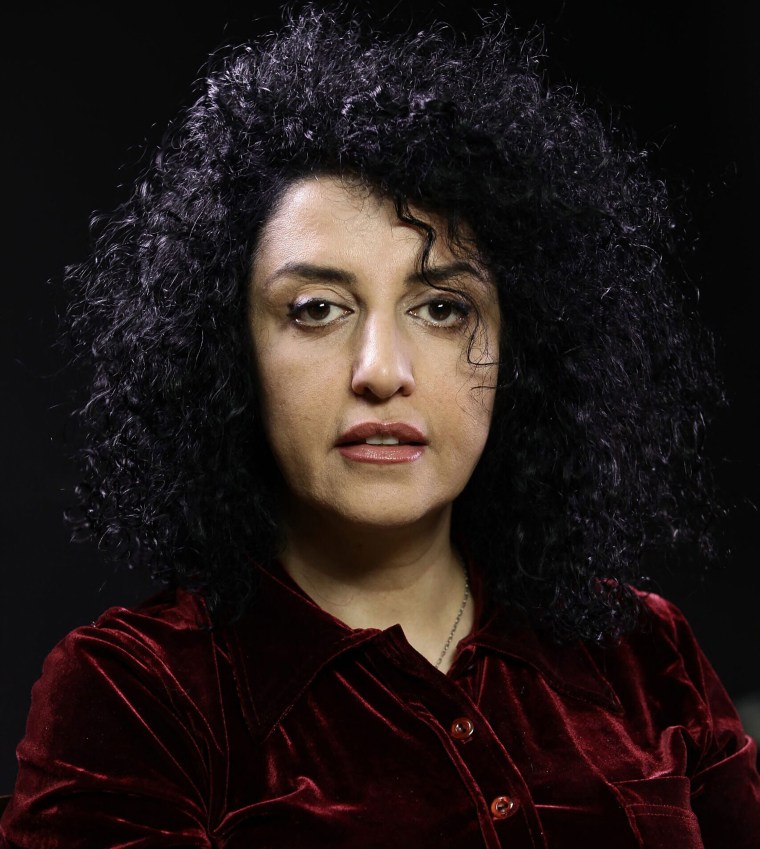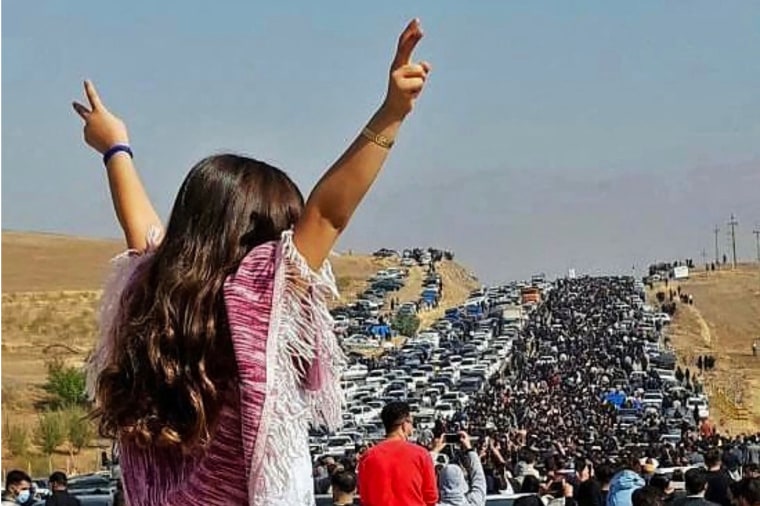Jailed Iranian human rights activist Narges Mohammadi won the Nobel Peace Prize on Friday for fighting against women’s oppression in Iran and advocating for human rights.
Berit Reiss-Andersen, head of the Norwegian Nobel Committee, said in a news conference in Oslo that “her brave struggle has come with tremendous personal cost.”
“Altogether, the regime has arrested her 13 times, convicted her five times and sentenced her to a total of 31 years in prison and 154 lashes,” Reiss-Andersen said
One of Iran’s most prominent human rights activists, Mohammadi, 51, worked as an engineer and a columnist for various newspapers following her studies.
She was first arrested in 2011 for assisting jailed activists and their families. After her release, she spent two years on bail and then began campaigning against Iran’s death penalty laws, for which she was arrested again in 2015.
“Upon her return to prison, she began opposing the regime’s systematic use of torture and sexualized violence against political prisoners and especially women,” Reiss-Andersen said.
Mohammadi is the deputy head of the Defenders of Human Rights Center, which is led by the 2003 Nobel Peace Prize winner Shirin Ebadi.
 Narges Mohammadi.AFP – Getty Images
Narges Mohammadi.AFP – Getty Images
“This Nobel Prize will embolden Narges’ fight for human rights, but more importantly, this is in fact a prize for the woman, life and freedom [movement],” Mohammadi’s husband, Taghi Ramahi, told Reuters in an interview.
In an audio recording from the prison published by CNN on Friday, Mohammadi was heard leading chants of “Woman, life, freedom,” the slogan of the protests.
“This period was and still is the era of greatest protest in this prison,” she told CNN.
Despite being behind bars, Mohammadi has rallied immense support for the women-led protests against the government that rocked Iran last year.
The protests were initially triggered by the death of a 22-year-old Kurdish woman, Mahsa Amini, who died in the hospital after being detained by the country’s morality police. The unrest developed into the biggest challenge to Iran’s theocratic establishment since the 1979 Islamic Revolution.
 An unveiled woman on top of a vehicle as thousands make their way towards Aichi cemetery in Saqez, Mahsa Amini’s hometown in the western Iranian province of Kurdistan, to mark 40 days since her death.AFP – Getty Images
An unveiled woman on top of a vehicle as thousands make their way towards Aichi cemetery in Saqez, Mahsa Amini’s hometown in the western Iranian province of Kurdistan, to mark 40 days since her death.AFP – Getty Images
Mohammadi and the other inmates would collect information about the protests. “We were stuck inside, but we did what we could to raise our voices against the regime,” she said in an essay published by The New York Times last month.
But the wave of protests was also followed by a wave of arrests.
“I have never seen as many new admissions to the women’s ward there as in the last five months.” she wrote. “What the government may not understand is that the more of us they lock up, the stronger we become.”
The Iranian state-affiliated news agency Fars said Friday: “Mohammadi did not use her days off and her treatment opportunities in the past few days [and] instead decided to create unrest and falsely claimed she had been beaten in prison.”
In defiance of authorities, Iranian women and girls removed their headscarves in public, at times burning them. Even though the underlying human rights abuses and economic troubles still persist, the protests were stifled by the authorities who resumed their hijab patrols in July.
“It was an incident. And of course the same incidents happen in different U.S. cities,” Iranian President Ebrahim Raisi told NBC News last month. “I contacted the family and I promised them to follow this issue. We started our probes, our investigation, judicial investigations,” he said, adding that the protests were fueled by Iran’s enemies.
>>> Read full article>>>
Copyright for syndicated content belongs to the linked Source : NBC News – https://www.nbcnews.com/news/world/iranian-human-rights-activist-narges-mohammadi-wins-nobel-peace-prize-rcna119156










